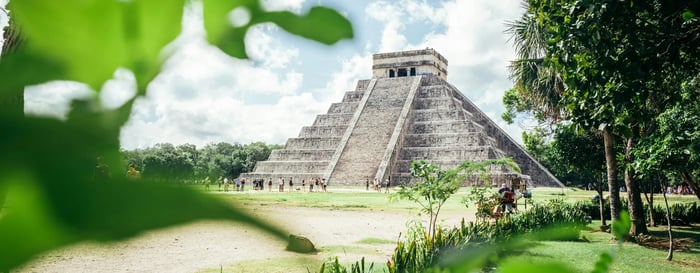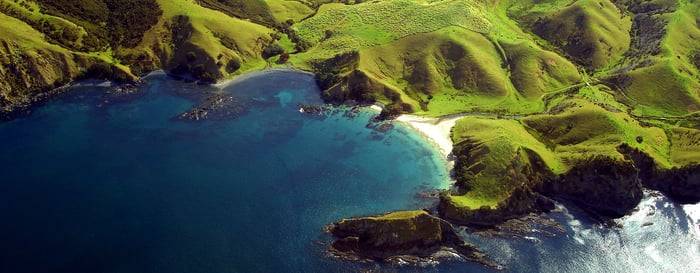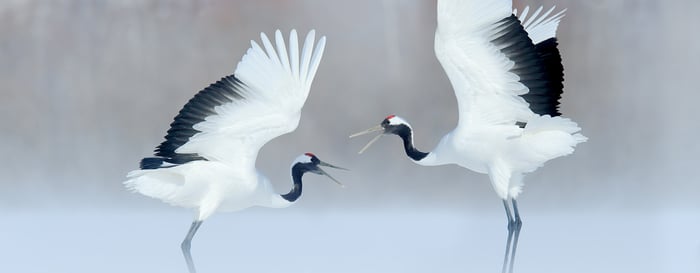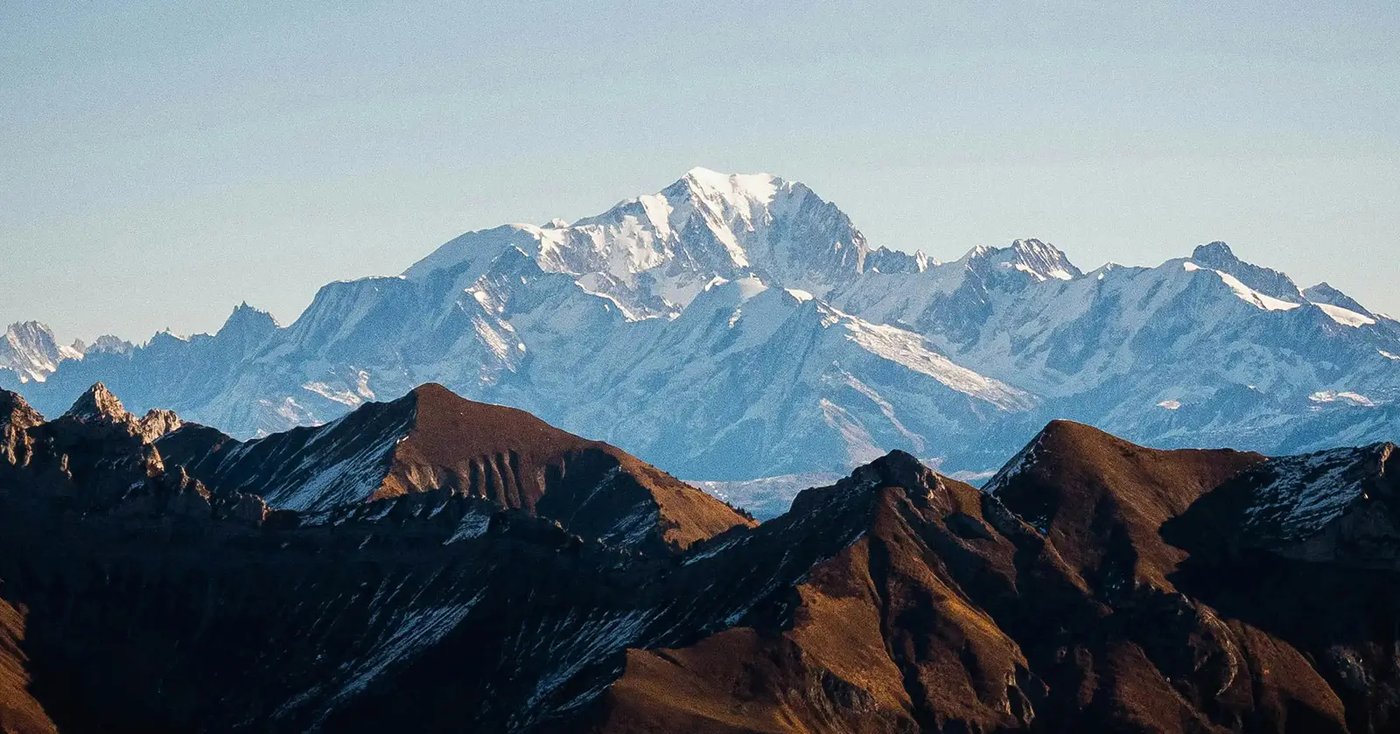You could spend your life visiting beautiful places in Argentina without scratching the surface, so I knew I was in for a treat because the national nickname for the entire province refers to its beauty. ‘Salta la Linda’ (Salta the Beautiful) has it all; gorgeous green villages, winding silver rivers, deep red canyons, perfectly preserved colonial architecture, vertiginous vermillion arroyos and some of the most desolately beautiful land I have seen. The impressive Andes form a constant backdrop, and the combination of altitude, switchbacks, sand, all-pervasive dust and ripio makes a challenging but rewarding ride.
Much of my route followed the partially paved Ruta Quarenta (Route 40 sounds so much better in Spanish). One of the wildest and least travelled roads on the planet, it runs parallel to Argentina’s Andean spine. It runs from the border with Bolivia in the north, through Salta, down to the southern land of glaciers and I was thrilled to be riding along the same road that Che Guevara travelled. It featured in the film The Motorcycle Diaries too, and the locals regard it with affection and awe.
Starting at Salta City the first turn of Ruta 33 (Route 33) ends as a long straight run through Parque Naçional Los Cardones. Riding through this 65,000 hectare expanse of dry uplands that rises from quite high to incredibly high altitudes, I was constantly aware of the constant backdrop of stratified candy-pink rock in the distance. The park is named for the candelabra cactus (cardon) which can live for 300 years. Riding amongst these legendary giant sentinels with arms thrust up to the vast cloudless sky was an extraordinary but scary experience because the desert reserve has no stops for supplies and mobile phone coverage is scant.
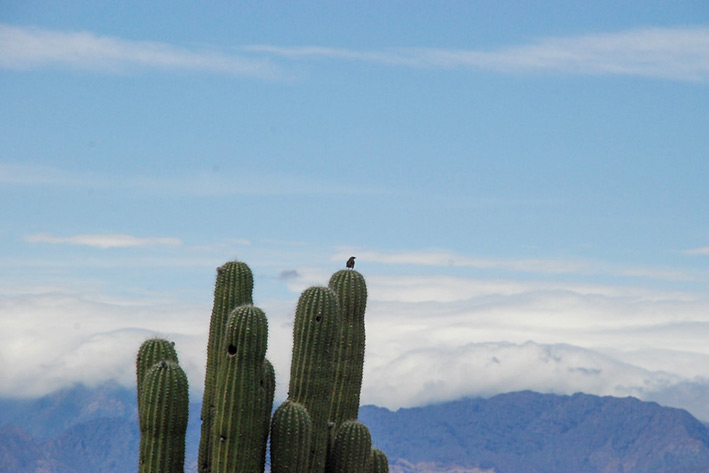
I think of myself as a world-class poodler so had to do the alternative route via San Antonio de los Cobres as well. This is the highest part of Ruta 40 and arguably the highest road point in Latin America. Steep inclines at hair-raising altitudes lead to switchbacks through the stunning Quebrada del Toro gorge and San Antonio de los Cobres and the route descends along less steep but equally challenging declines and a fantastic panorama at Abra de Acay (this is the location of a six-day mountain bike challenge which one day I hope to do) before joining Ruta 40 for a comparatively easy short run.
The rewards of this high pass were tremendous, revealing expanses of dirty yellow scrub and then the brilliant white salt flats of the Puna. Looking around as I rode, the horizons were edged by pastel-coloured mountains and profusely dense forests, before I descended through tiny hamlets of neat adobe houses shrouded in low cloud which cleared to give dramatic views of breath-taking valleys and velvety bronze-green vegetation-clad mountains before reaching the foot of the nine-peaked Nevado de Cachi. Some say that the area is named for the salty look of the mountains, and others that it means ‘silent stone’. Whatever the reason, there is a wonderfully verdant valley irrigated by channels built by Diaguita Indians long before the Incas arrived. Before Molinos (molinos means windmills but I didn’t see any). I took a short detour to Quilmes, through villages of handsome colonial architecture and churches with roof beams and confessionals of cardon, to Quilmes to see the fascinating archaeological ruins of a pre-Inca town.
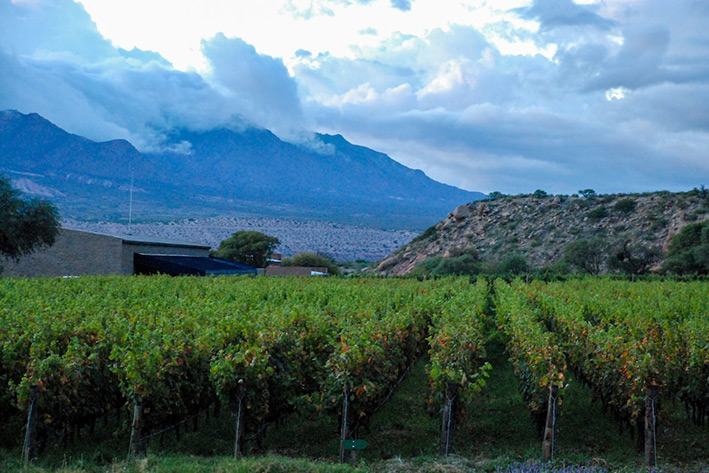
South of Molinos I stopped at the extraordinary Estancia Colomé. One of the most exclusive luxury boutique hotels in Argentina, this oasis of cultivation is a fully biodynamic farm and excellent winery boasting hectares of pre-phylloxera vines and its own James Turrell art gallery. Rejuvenated by a stay of a couple of days, some local short walks and a wonderful horseback trek, I took up my cycle route again, passing southwards through more vineyards and the relatively easy pass of Quebrada de las Flechas (‘Gorge of Arrows’), comprised of high, dark cliffs eroded into toweringly sharp peaks jutting aggressively into the bright blue sky.
The home stretch ride descended through areas of exquisite natural beauty and tiny villages with whitewashed churches, green fields and orchards where tenacious inhabitants have for centuries scratched a living from the dry desert soil, but I wasn’t finished yet. My cycling voyage of discovery ended close to Cafayate on Ruta 68, in a fairly long round-trip investigation of Quebrada de las Conchas (‘Gorge of Shells’) and its valley. I took a tent and my time, knowing that at dawn I’d be more likely to see the wildlife and that the photography would be better as well. I was ready to see Ñandúes (ostrich-like rheas), caranchos and condor and wasn’t disappointed at all.
This final detour took me through exposed geological formations beautifully eroded by heat, wind and rain, the rich greens of the valley itself, a silvery river and ochre, pink, burgundy and terracotta canyon walls forming idyllic scenes revealed anew with each twist of the road. I also stopped at El Anfiteatro; a natural amphitheatre with acoustics good enough for regular outdoor concerts, and photographed the formations Los Castillos (‘The Castles’) and El Sapo (‘The Toad’).
I left the bike indoors and took it easy for a few final days in Cafayate; a town famous for its position in the centre of a plateau that itself is famous for its wines and goat cheese. 350 days of sunshine, a high thermal amplitude and fantastic terroir produce some excellent, intensely red wines and the white Torrontes for which the region is famed. Unable to choose between the Torrontes at Finca Las Nubes and San Pedro de Yacochuya I decided on final exquisite samplings at both. Sitting in the sun with a glass in my hand and appreciating the stunningly beautiful views, I lingered over the wine’s delicious combination of strength and enticing light floral aromas and the sense of a hard ride well done
Classic Mexico
- Explore Mexico City with its museums, nightlife and excellent hotels
- Discover the Mayan ruins of the Yucatan Peninsula
- Stay at the beautiful historic haciendas of colourful Merida
- Take a jeep safari and boat ride in the jungle of the Sian Ka’an Biosphere on the Caribbean coast
- Relax on the stunning sands of Tulum
New Zealand & Fiji
Auckland & Waiheke Island Lake Taupo & Rotorua Napier & Hawkes Bay Fiji
- See the Waitomo Glow Worm Caves at Rotorua
- Experience the best of New Zealand's luxury lodges and Mount Tarawera
- Witness the majestic Huka Falls, New Zealand
- Snorkel and scuba dive with Manta-rays and reef sharks
- Meet the local Fijian people - some of the friendliest people in the world!
Winter in Hokkaido
-
Enjoy a sightseeing tour from an Ice Breaker
-
Go on a Drift Ice Walking tour
-
Cruise around the coast of Shiretoko spotting birds and animals
-
Trek the walking trails around Akan National Park, Japan
-
Go dog sledding through the wintery landscape
